Sex Reassignment Surgery (Male to Female) in Cape Town
Search and Compare the Best Clinics and Doctors at the Lowest Prices for Sex Reassignment Surgery (Male to Female) in Cape Town

Find the best clinics for Sex Reassignment Surgery (Male to Female) in Cape Town
No pricing info available
Thailand offers the best prices Worldwide
Price: $ 2,473
Dr Dawid Potgieter, located in Syfred Douglas St, Cape Town, South Africa offers patients Sex Reassignment Surgery (Male to Female) procedures among its total of 90 available procedures, across 1 different specialties. Currently, there's no pricing information for Sex Reassignment Surgery (Male to Female) procedures at Dr Dawid Potgieter, as all prices are available on request only. All procedures and treatments are undertaken by the lead specialist at the Hospital, and they have multiple recognized accreditations, including: HPCSA - Health Professions Council of South AfricaDepartment of Health, Western CapeFCS(SA) - Fellowship of the College of Surgeons of South Africa
- Home
- South Africa
- Cape Town
Compare Before & After Photos of _procedure_photos.phpSex Reassignment Surgery (Male to Female)


Front view


Front view
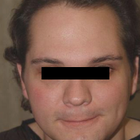

Front view


Front view


Front view


Front view
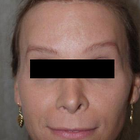
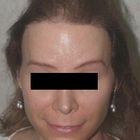
Front view
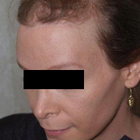
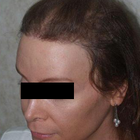
Half-side view


Front view
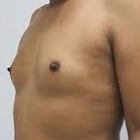

Half-side view
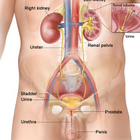
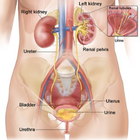
Front view
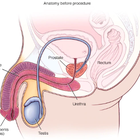
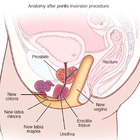
Full-side view
WHY US?
At Medijump, we're making medical easy. You can search, compare, discuss, and book your medical all in one place. We open the door to the best medical providers worldwide, saving you time and energy along the way, and it's all for FREE, no hidden fees, and no price markups guaranteed. So what are you waiting for?

Free

Best Price

Widest Selection

Risk-Free
What you need to know about Sex Reassignment Surgery (Male to Female) in Cape Town

Also known as Gender Reassignment or Sex Change Surgery, Sex Reassignment Surgery (SRS) involves the surgical procedures required to change a person’s sexual characteristics from one gender to the other. The procedure can be used to transition a person from Male to Female and from Female to Male. Male to Female procedure involves reshaping of male genitals to appear and function as female genitalia (including a vaginoplasty), hair removal therapy, hormone replacement, facial feminization surgery, and Breast Augmentation.
Hormone treatment is started one year prior to surgery and continues after, where estrogen helps to reshape the body’s contours and stimulates the growth of labia majora. At least one therapist will be required to assess a patient’s psychological wellbeing before the go-ahead can be given.
The decision to have a breast augmentation should be an informed one that takes into account the potential risks and side effects. You should also have realistic expectations about the results of breast implant surgery to avoid disappointment. Find out about the procedure, the recovery period and any possible complications - ask your doctor or surgeon if you are unsure about anything.
What is the cost of Sex Reassignment Surgery (Male to Female) in Cape Town?
One of the most common inquiries about the Sex Reassignment Surgery (Male to Female) pertains to its expense. The financial burden associated with the procedure may significantly impact one's decision to pursue it. Nonetheless, it's not easy to pinpoint the exact cost, given that numerous factors can influence it. In Cape Town, the total cost of the procedure may fluctuate considerably based on factors like surgeon qualification, the intricacy of the operation, and the span of hospitalization, to name a few.
It's vital to acknowledge that the Sex Reassignment Surgery (Male to Female) is not a one-off event, but entails a succession of treatments and surgeries. Typically, it includes mental health sessions, hormone treatments, and several surgical procedures, all of which add to the general cost. Expenses post-surgery, such as medication, check-up appointments, possible extra surgeries, and supplementary therapies, also require consideration. Furthermore, expenses for travel and lodging in Cape Town should be taken into account. For a precise cost approximation, reach out directly to the clinic.
What does a Sex Reassignment Surgery (Male to Female) Procedure Involve?
Clinically speaking, sex change operation is known as “Genitoplasty Procedure”. This type of procedure can be performed to transition an individual from female to male and from male to female.
It is very important to understand that before you undergo surgery, you will need to first transition. Gender transition is a lengthy process that requires a lot of patience and resilience. In addition, it will be of great help if you have a strong support system to back you up in times of difficulty. It’s also essential that you have a therapist to not just help you with your emotional wellbeing before and after the transition, you will also need a letter of recommendation from your therapist before your surgery.
Transitioning from male to female will involve penectomy (removal of the penis), orchiectomy (removal of testes), vaginoplasty (creation of a vagina), and feminizing genitoplasty (creation of female genitalia). During the surgery, you will be induced with a general anesthetic.
You must start hormone treatment a year prior to your surgery to help reshape your body contours and stimulate the growth of your labia majora. Hormone treatment will be continued even after your sex-change operation.
There are popular MTF sex reassignment surgery techniques which you can choose from, two of which are: sex reassignment surgery with skin graft technique - the most popular SRS procedure, vaginal depth is up to 13-15cm (5-6 in). Another is sex reassignment surgery with colon graft - suitable for people with less scrotal skin and those who prefer a lubricated vagina and is considered as the most expensive procedure.
There are other procedures that you can undergo to fully transition from male to female. These may include; breast implants, facial feminization surgery (FFS), and another procedure would be to minimize the appearance of your Adam’s apple, etc. All procedures to help one fully transition will vary on the individual’s need and of course, their budget.
Prerequisites to Surgery
- Patients must be at least 20 years old or have consent from parents / legal guardians for those between 18 and 20.
- At least 12 months of successful and continuous real-life experience living as a woman.
- At least 12 months of continuous hormonal therapy.
- Must consult with a psychiatrist in the home country and in the country where the procedure will be performed (this can be arranged in your chosen hospital in Cape Town).
- Physically fit for surgery.
Popular MTF Sex Reassignment Surgery (SRS) Techniques
1. SRS with Penile Skin Inversion
- Suitable for patients who do not want a vagina for sexual intercourse, particularly popular with elderly trans people. Depth is around 2-4 cm (1-2 in) and penile hair removal is required prior to surgery.
- Surgery: 2.5 hours
- Hospitalization: 4 nights
- Recovery time in Cape Town: 3-4 weeks
2. SRS with Scrotal Skin Graft
- Scrotal skin is used to create a vaginal depth of up to 13-15 cm (5-6 in), depending on skin quality and quantity (additional depth is possible by using groin skin). This is the most popular SRS procedure.
- Surgery: 4 hours
- Hospitalization: 6 nights
- Recovery time in Cape Town: 3-4 weeks
3. SRS with Sigmoid Colon by Laparoscopic Technique
- The Sigmoid colon is used to create the vagina, allowing for greater depth than what is possible with SRS with a scrotal skin graft. More suited to those with less scrotal skin or those who prefer to have a lubricated vagina, like that of a biological woman. By far the most expensive technique.
- Surgery: 6 hours
- Hospitalization: 7 nights
- Recovery time in Cape Town: 3-4 weeks
How Long Should I Stay in Cape Town for a Sex Reassignment Surgery (Male to Female) Procedure?
A lot of patients prefer having surgery overseas since it is far less expensive and most countries, like Cape Town, have a very high success rate in terms of plastic surgery and gender reassignment surgery.
Recovery after surgery will be a long and painful process. It will also require several follow up procedures as well as constant monitoring so you will have to stay a little bit longer at the hospital until you are ready to be discharged. Generally, allow for a minimum of 3 weeks stay in Cape Town after your surgery, this will allow for the removal of stitches and a few weeks of follow up visits with the surgeon.
What's the Recovery Time for Sex Reassignment Surgery (Male to Female) Procedures in Cape Town?
Smoking before and after the surgery is highly discouraged and avoid smoking for at least two weeks to reduce risks of non-healing.
Most people are able to return to work in about 4-6 weeks after a sex change operation. Furthermore, you can resume strenuous work and exercise after 2 months. It is vital that you strictly follow all medication instructions during your recovery period.
Keep in mind, recuperation incorporates not only physical healing but also emotional rejuvenation. The Sex Reassignment Surgery (Male to Female) implies a noteworthy modification in your way of living and acclimating to an altered body image and social identification requires patience. Mental health guidance proves to be an important element in the healing journey, offering emotional assistance and managing any mental obstacles that come up.
What sort of Aftercare is Required for Sex Reassignment Surgery (Male to Female) Procedures in Cape Town?
Social support is very important before and after the surgery, especially the support that comes from your family and loved ones. You have to be socially and emotionally stable before you undergo the operation. This is why it is required that you have proper counseling to help you with your emotional wellbeing. You have to prepare yourself mentally, before, during and after transition because it can be quite overwhelming and stressful.
It is also important that you maintain a regular check-up with your local doctor to monitor the progress of your healing and avoid complications.
What's the Success Rate of Sex Reassignment Surgery (Male to Female) Procedures in Cape Town?
The success rate for a sex change is very high nowadays, given technological advancements and the greater experience of surgeons. Gender reassignment surgery from male to female has a higher success rate than female to male; this is why more male transgender people opt for a sex change.
However, given the nature and complexities of this type of surgery, you also have to be aware of its complications, for example, there is always a possible risk of infection, severe pain, given the intrusive nature of the surgeries and the potential for blood clotting and scarring.
Possible side effects may also include a decreased sexual sensation and ability to orgasm, fistula (opening between rectum and vagina), narrowing of vagina and hair growth in the vagina from the grafted tissue and the partial death of tissue used to create the new vagina.
Are there Alternatives to Sex Reassignment Surgery (Male to Female) Procedures in Cape Town?
There is no alternative to a sex-change operation for those who want to fully transition their body to match their gender identity. Undergoing gender reassignment surgery will require a lot of time, energy, patience, and of course money. A vast majority of people who experience gender dysphoria never really surgically alter their appearance. Instead, they use creams and hormonal pills to alter their bodily appearance. Estrogens (female hormones) will help develop the breast, widen the hips, help lose facial hair and slightly increase voice pitch.
What Should You Expect Before and After the Procedure
Prior to even undergoing the Sex Reassignment Surgery (Male to Female), those considering this option should be aware that their health care provider will necessitate a thorough evaluation phase. This is implemented to ascertain that the individual is thoroughly prepared, both physically and mentally, for the major changes that the procedure implies. The evaluation generally includes multifaceted assessments of physical and mental health, as well as evaluating certain social circumstances. The objective of these assessments is to gauge the individual's preparedness and appropriateness for the procedure.
In this initial stage, the health care provider implements a cross-disciplinary strategy, typically engaging a collaborative team made up of endocrinologists, psychologists, and surgeons. The aim is the effective provision of required hormone therapy and mental health counseling, alongside addressing any possible health-related issues. This pre-surgery stage also serves to educate and obtain consent, meticulously discussing details such as the implications, possible outcomes, risks, and difficulties related to the Sex Reassignment Surgery (Male to Female). Once approved for surgery, patients should be ready to adhere strictly to all pre-surgery directions to lessen any potential risks and complications during the process.
Post Sex Reassignment Surgery (Male to Female), patients should gear up for a substantial recovery period. This will require dedicated wound maintenance, compliance with prescribed medicines, and following specific physical limitations to assist healing. Depending on the specific nature of the surgery, some patients might also have to adhere to a vaginal dilation plan. This plan necessitates consistent use of dilators to avoid the newly created vagina from becoming narrow during the healing period.
What are Potential Risks of Sex Reassignment Surgery (Male to Female)?
A comprehensive understanding and consideration of prospective hazards and difficulties linked to Sex Reassignment Surgery (Male to Female) is vital before proceeding. As a significant surgical operation, it inherently possesses hazards such as intolerance to anesthesia, surgical infections, hematoma or blood congregating outside the blood vessels, excessive bleeding, or suturing problems. Even with the advancements in modern surgical procedures that help minimize these risks, they cannot be entirely eradicated and, therefore, must be anticipated.
The Sex Reassignment Surgery (Male to Female) encompasses elaborate and multifaceted surgeries like vaginoplasty, which have unique inherent risks. Some of these potential hazards include the possibility of diminished sexual sensitivity, complications in urinary functions, or challenges with the dimensions of the newly formed vagina. Other complications can include issues such as vaginal stenosis, a scenario where the vagina gradually shrinks and lessens over time, or rectovaginal fistula, a rare situation where a connection forms between the rectum and vagina unintentionally. Sometimes, more corrective surgeries might be necessitated due to post-surgical complications.
Popular Procedures to Combine with SRS
- Usually performed in one operation: Orchiectomy to remove the testicles and prevent further production of testosterone, Penectomy to remove the penis and Vaginoplasty to form the female genitalia
- Breast Augmentation to create the breasts, which is usually performed at a later date.
- Facial Feminization Surgery (FFS) and Tracheal Shave to help feminize the facial features and is not necessary for many patients.
- Hair Implants, Hair Removal Therapy, and Continued Hormone Replacement Therapy.
Whilst the information presented here has been accurately sourced and verified by a medical professional for its accuracy, it is still advised to consult with your doctor before pursuing a medical treatment at one of the listed medical providers
No Time?
Tell us what you're looking for and we'll reachout to the top clinics all at once
Enquire Now

Popular Procedures in Cape Town
Prices Start From $69

Prices Start From $208

Prices Start From $1,945

Prices Start From $1,795

Prices Start From $889

Recommended Medical Centers in Cape Town for Sex Reassignment Surgery (Male to Female)

- Interpreter services
- Translation service
- Religious facilities
- Medical records transfer
- Medical travel insurance
- Health insurance coordination
- TV in the room
- Safe in the room
- Phone in the room
- Private rooms for patients available

- Interpreter services
- Translation service
- Religious facilities
- Medical records transfer
- Medical travel insurance
- Health insurance coordination
- TV in the room
- Safe in the room
- Phone in the room
- Private rooms for patients available

- Interpreter services
- Translation service
- Religious facilities
- Medical records transfer
- Medical travel insurance
- Health insurance coordination
- TV in the room
- Safe in the room
- Phone in the room
- Private rooms for patients available

- Interpreter services
- Translation service
- Religious facilities
- Medical records transfer
- Medical travel insurance
- Health insurance coordination
- TV in the room
- Safe in the room
- Phone in the room
- Private rooms for patients available

- Interpreter services
- Translation service
- Religious facilities
- Medical records transfer
- Medical travel insurance
- Health insurance coordination
- TV in the room
- Safe in the room
- Phone in the room
- Private rooms for patients available

- Interpreter services
- Translation service
- Religious facilities
- Medical records transfer
- Medical travel insurance
- Health insurance coordination
- TV in the room
- Safe in the room
- Phone in the room
- Private rooms for patients available

- Interpreter services
- Translation service
- Religious facilities
- Medical records transfer
- Medical travel insurance
- Health insurance coordination
- TV in the room
- Safe in the room
- Phone in the room
- Private rooms for patients available

- Interpreter services
- Translation service
- Religious facilities
- Medical records transfer
- Medical travel insurance
- Health insurance coordination
- TV in the room
- Safe in the room
- Phone in the room
- Private rooms for patients available

- Interpreter services
- Translation service
- Religious facilities
- Medical records transfer
- Medical travel insurance
- Health insurance coordination
- TV in the room
- Safe in the room
- Phone in the room
- Private rooms for patients available

- Interpreter services
- Translation service
- Religious facilities
- Medical records transfer
- Medical travel insurance
- Health insurance coordination
- TV in the room
- Safe in the room
- Phone in the room
- Private rooms for patients available
Sex Reassignment Surgery (Male to Female) in and around Cape Town
About Cape Town
Cape Town is the legislative capital of South Africa and is also known as the Mother City. It is the oldest city in the country and home to the Parliament of South Africa and is a major destination for immigrants and expatriates, making it one of the most multicultural cities in the world. Located on the shore of Table Bay, the city is known for its harbor, natural setting, as well as famous attractions and many tourists, visit to enjoy Table Mountain and Cape Point.
Recently, tourists also come to the city for its medical tourism. Many groundbreaking procedures and medical research in South Africa, such as the world’s first penile transplant, have put Cape Town under the radar of medical tourists from all around the globe. Thanks to its world-class healthcare and world-renowned medical practitioners, more and more people now prefer Cape Town as their medical destination. The healthcare in the city is among the best on the African continent. Other reasons such as shorter waiting times for surgeries, state-of-the-art equipment, and affordable healthcare compared to Europe and the United States, and English-speaking doctors.
Popular Areas in Cape Town
Cape Town is a natural beauty that offers a wide range of things to do and see. From culture, food, art, to nature. Listed below are some of the more popular places in the city:
- Table Mountain is one of the New 7 Wonders of Nature and it is easy to see why. The iconic mountain makes an amazing backdrop to Cape Town. The level plateau is about 3 kilometers from side to side with remarkable cliffs on the edges. The peak offers an amazing view of the city. Tourists can choose to board the cable car or discover its beautiful nature by hiking.
- Cape of Good Hope is situated within the Table Mountain National Park. The area has a mix of bio-diversity and wonderful beauty that attracts thousands of tourists to visit. There are around 250 species of birds spotted in the area. Hiking and cycling through it is the best way to discover its true majesty. Tourists can picnic and birdwatch in isolated beaches.
- Kirstenbosch National Botanical Garden is one of the most incredible botanic gardens in the world. Nestled at the eastern foot of Table Mountain, it features a natural forest and fynbos flora and sprawls around 528 hectares. The garden displays a collection of diverse South African plants with seasonal festivals such as musical sunset concerts during summer and craft markets on the last Sunday of every month.
- Groot Constantia is the oldest wine-producing estate in South Africa, located in the suburb of Constantia. The estate consists of a museum, restaurants, tasting room, and cellars. The museum was built in Cape Dutch architecture style, further into the estate; tourists will find the free orientation center which provides an overview of Groot Constantia history. Tourists can also tour the original wine cellar, have a wine tasting, or a wine and chocolate pairing.
- Boulders Penguin Colony is located in Boulder Beach on the outskirts of Simon’s Town. The beach boasts fine white sand with pristine waters and endangered African penguin colonies. Tourists can set up camp, see the penguins up close, and even swim along with the magnificent aquatic birds. Observing the penguins socializing and playing in the waves is a perfect way to enjoy your travel in Cape Town.
Weather and Climate in Cape Town
Cape Town enjoys a warm Mediterranean climate. The summer is dry and warm, lasting from early December to March. The average maximum temperature during this season is around 26 °C, and the minimum is 16 °C. The Berg Wind that arrives from February to early March can make the city uncomfortably hot for a couple of weeks.
The winter starts in June and ends in August and the season is characterized by mild and wet weather. The city also experiences strong north-westerly winds during this season. The average temperature ranges between 8.5 °C at the lowest and 18 °C at the highest.
Getting Around in Cape Town
The primary airport that serves Cape Town is the Cape Town International Airport and it is the second busiest airport in South Africa and the fifth busiest in Africa. The airport serves direct domestic flights to major cities and several small centers in the country. It also connects the country with major cities in Africa, Europe, the Middle East, and Asia. It is the hub for South African Express as well as budget airlines such as Mango and FlySafair.
There are several types of taxis: the metered taxis, Rikkis Taxis, and minibus taxis. The metered taxis can be a little expensive but are usually comfortable. Tourists can order one via a phone call or from one of the city’s official taxi stands. Tourists should always choose reputable taxi companies such as Marine Taxi, Unicab, Excite, and SA Cab.
Rikkis Taxis are painted yellow and very popular and these taxis run on a fixed fare rather than metered, so they are a little more affordable than metered taxis and a good option if you are traveling on longer journeys. Other than the Rikkis Taxis, tourists can choose the minibus taxis which are perfect for adventurous foreign travelers. The minibus taxis can be found practically everywhere and are very cheap, however, you will need to know exactly where your destination is and tell the driver when to stop. Another travel option is the MyCiTi bus, a modernized and effective bus system.
Tourist Visas in Cape Town
There are more than 60 countries listed in the visa exemption agreements, which means the citizens of these countries can stay in South Africa for up to 90 days. Other countries not listed must obtain a valid visa to enter the country. A Medical Treatment Visa is available for medical tourists. Note that all visitors must hold a passport valid for at least 30 days after the expiration of their intended visit.
Additional Information
- Local Currency: South African Rand (ZAR) is the official currency and 1 USD converts to 14 ZAR.
- Money & Payments: Tourists can find ATMs almost everywhere around the city, but you should avoid ATMs in secluded places, especially at night. Credit cards are accepted in established restaurants, hotels, and shops. It is always better to carry some cash because smaller food places are cash-only. Tipping is expected here.
- Local Language: The most common languages in the city are English, Afrikaans, and Xhosa with Afrikaans as the most widely spoken home language.
- Local Culture and Religion: The population follows Christianity, Islam, Judaism, and several other religions.
- Public Holidays: There are 12 official public holidays in Cape Town, including New Year’s Day, Freedom Day, and Christmas.
Popular Searches
- Plastic Surgery in Thailand
- Dental Implants in Thailand
- Hair Transplant in Thailand
- Breast Augmentation Thailand
- Gastric Sleeve in Thailand
- Gender Reassignment Surgery in Thailand
- Laser Hair Removal in Bangkok
- Botox in Bangkok
- Dermatology in Bangkok
- Breast Augmentation in Bangkok
- Coolsculpting in Bangkok
- Veneers in Turkey
- Hair Transplant in Turkey
- Rhinoplasty in Turkey
- Stem Cell Therapy in Mexico
- Rhinoplasty in Mexico
- Liposuction in Mexico
- Coolsculpting in Tijuana
- Rhinoplasty in Korea
- Scar Removal in Korea
- Gastric Sleeve in Turkey
- Bone Marrow Transplant in India
- Invisalign in Malaysia
- Plastic Surgery in the Dominican Republic
- Tummy Tuck in the Dominican Republic
- Plastic and Cosmetic Surgery in Poland
- Rhinoplasty in Poland
- Hair Implant in Poland
- Dental Implants in Poland
- IVF in Turkey
